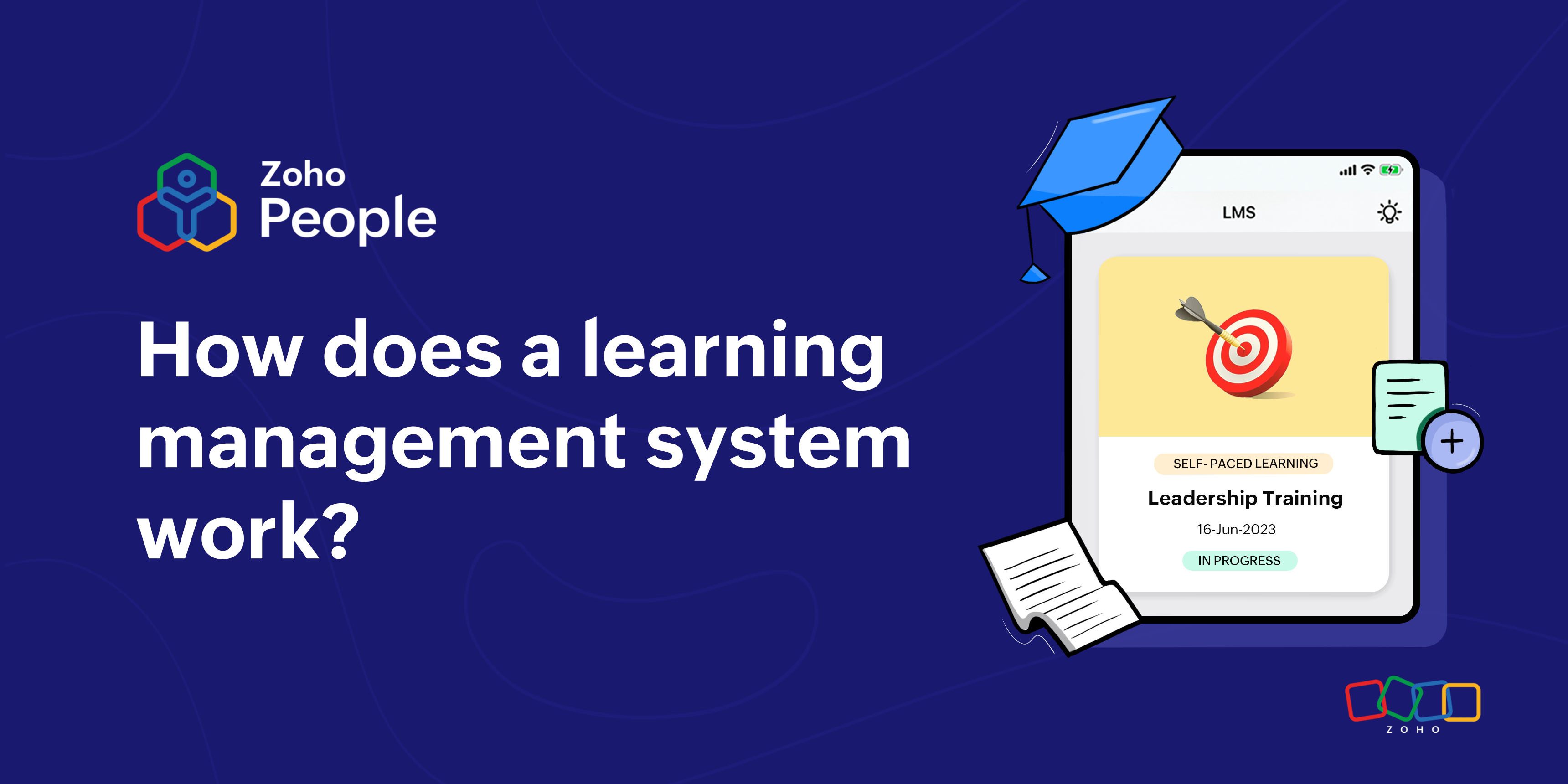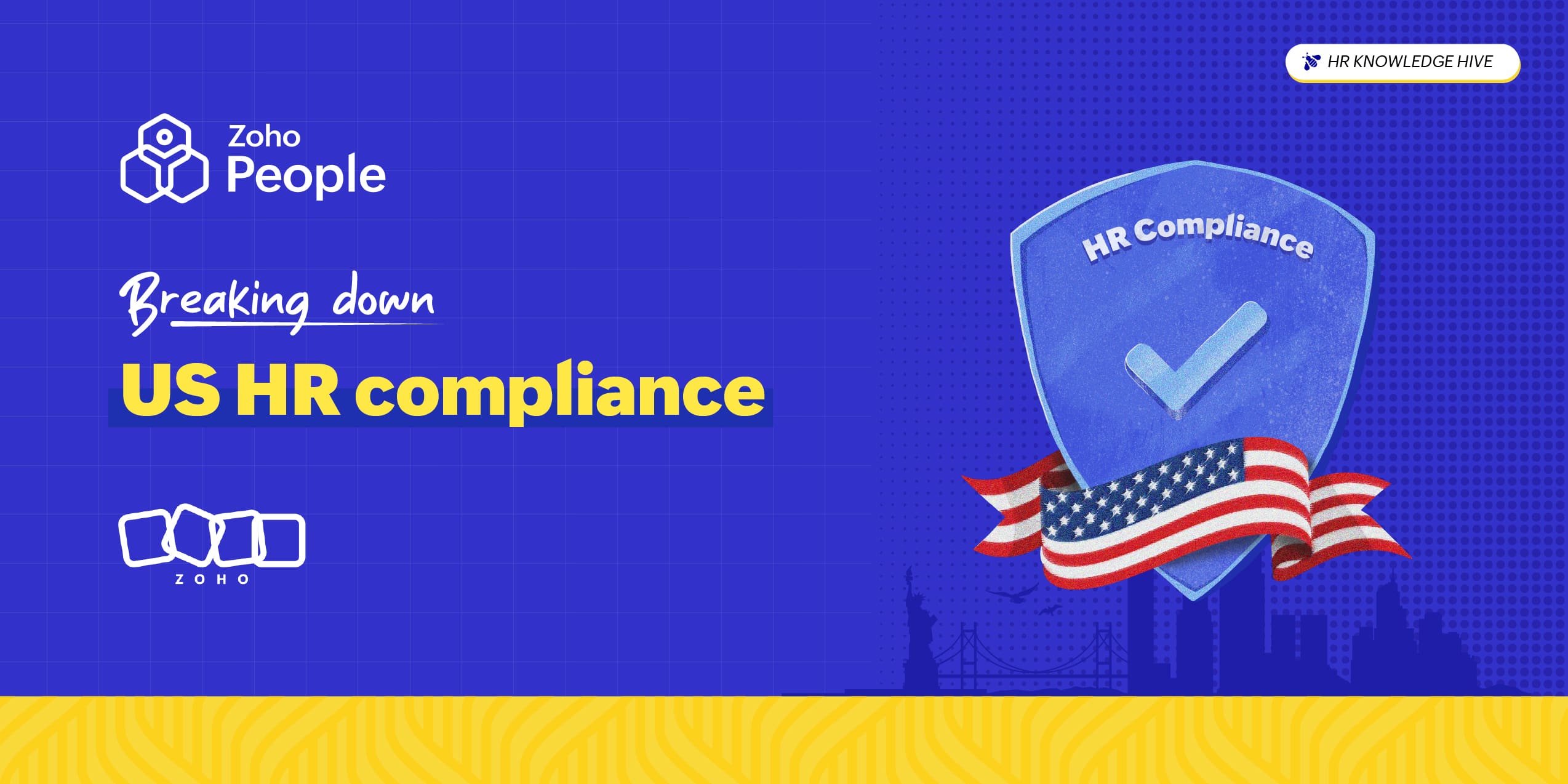- HOME
- More
- Learning and Development
- How does a learning management system work?
How does a learning management system work?
- Last Updated : August 23, 2023
- 1.7K Views
- 4 Min Read

For your organization to gain a competitive edge, you must upskill your employees regularly and ensure that they stay aware of relevant industry trends. When you make efforts to invest in your employees' development, they'll stay engaged and satisfied. But, how can you make learning and development a part of your organizational culture? Luckily, training is no longer confined to a conference room and lengthy sessions. More and more organizations are shifting towards cloud-based learning management systems (LMS) that make training and development concise, flexible, and engaging. Let's explore how an LMS works and how it can simplify training.
Create multiple courses
Using an LMS, you can develop multiple relevant courses for your employees in just a few steps. All you have to do is to provide a name for your course, set learning objectives, add relevant learning materials, define for whom the course will be applicable, organize the course in batches if necessary, and offer a few other necessary details. The course can either be self-paced, where your employees take charge of their learning, or blended, where employees are guided throughout the learning process. E-learning materials can be in the form of videos, documents, links, URLs, presentations, and more. You can even clone courses and save time if the new course you want to create is identical to the existing one.
Conduct assignments and tests
You'll likely want to conduct assignments and tests as part of your training programs, as this can help you understand how well your employees have understood the course material. With an LMS, employees can take assignments and online tests from a single, centralized space so that their results are easy to track. You can add assignments to your courses during course creation or later on, and you can also set a weight for each one. Your learners will be able to work on them as they work through the training. When it comes to tests, you can have both online and offline tests. If it's offline, you can attach a question paper that your employees can download and refer to. If it's online, you can add questions in the form of single, multiple choice, or true or false and grade learners as they take the test.
Support learning plans
Sometimes, you may want your employees to take a systematic approach toward training. This is where learning plans come in handy. Learning plans in an LMS allow training administrators to create different levels and add courses to each level. For instance, if a particular learning plan aims to improve your workforce's soft skills, you might create three levels in your learning plan. Level 1 can have all the courses about communication, level 2 can have courses that target leadership skills, and level 3 can have courses that help employees improve their teamwork. When employees complete this particular learning plan, they will be proficient in all three areas.
Support flexible learning
Mobile learning has become one of the most sought-after training approaches among many organizations. That's why most LMS options come with a dedicated mobile application that allows employees to learn from anywhere, at any time. Through the LMS mobile app, your learners can access and download their learning materials, attend virtual sessions, view their assignments, take online tests, interact with their course tutors, collaborate with their fellow learners, and provide feedback on the courses. Being able to do all of this with a click of a button from their mobiles will provide an exceptional remote learning experience to employees.
Track key training metrics
Most learning management systems come with reports that help you stay on top of how your training programs are progressing. From a single tab, you can get all course-related information, including how many learners have enrolled for your course, their grades, how many have submitted or not submitted their assignments, and how they are progressing. Additionally, you can get a holistic picture of the different course types that you offer, course admin ratings, course ratings, different course categories, and much more useful information.
Understanding how an LMS works
With today's workplace demands, it's wise to invest in a learning management system that comes with several intuitive features that simplify the entire training process, from building courses to offering course completion certificates to learners. Having a learning management system can help organizations make training continuous, effective, and flexible.
Zoho People comes with a comprehensive LMS that provides an exceptional e-learning experience to employees by offering diverse learning styles, facilitating learner collaboration, and supporting different content types. Learn more about Zoho People's learning management system.
Also read: How do I choose the right LMS?
 Tarika
TarikaContent Specialist at Zoho People


